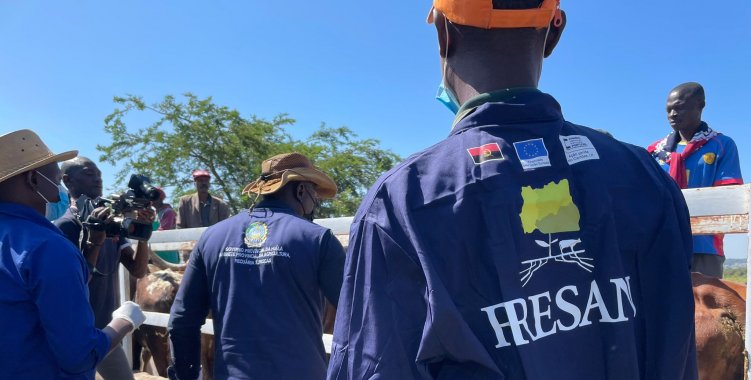The National Bovine Vaccination Campaign presents itself as an activity that the Ministry of Agriculture carries out through the Institute of Veterinary Services, in partnership with provincial governments, which delegate municipal administrations.
The provinces of Huíla, Cunene and Namibe stand out for having the largest number of livestock. Huíla with 1,270,000, Cunene with 1,250,000, and Namibe with 600,000 head of cattle. In this region, the campaign is supported by the FRESAN/Camões I.P. Programme, financed by the European Union through the acquisition of equipment for the storage and conservation of vaccines, in order to guarantee a cold chain that allows safeguarding the initial characteristics to ensure immunity. At the moment, more than 300,000 heads of cattle have been vaccinated in the southern region, according to a statement sent to VerAngola.
According to Henrique Gimi, Director of the Institute of Veterinary Services (ISV), cooperation with FRESAN is necessary. "It has been useful in many ways, mainly in the cold chain: an indispensable component in the conservation of vaccines. Without a functional cold chain it would be very difficult to take vaccines through the municipalities", he said.
With the aim of immunizing the animal herd, preventing the spread of diseases and minimizing economic and nutritional losses, this massive vaccination campaign allows for a better control of bovine health.
"Although traditional livestock farmers use the expansive system and the business sector the intensive one, veterinary services ensure animal health for all livestock farmers.
As we know, the cattle travel great distances and there is almost no delimitation in the pasture areas, which implies that the cattle end up mixing. Massive vaccination serves to immunize all cattle and ensure the eradication of factors that serve as intermediaries in the transmission of diseases", guaranteed Henrique Gimi, director of the ISV.
The vaccines applied are aimed primarily at contagious pleuropneumonia, anthrax, symptomatic anthrax and nodular dermatitis, which have been the cause of death for a considerable number of national cattle, the document also explains.
In addition to the bovine vaccination campaign, samples are being collected for a veterinary study that will determine the specific distribution of diseases for each region. With the results of this study, a health control map will be produced, which will contain considerations and official recommendations for the necessary vaccines and for the treatment of diseases by each region.







